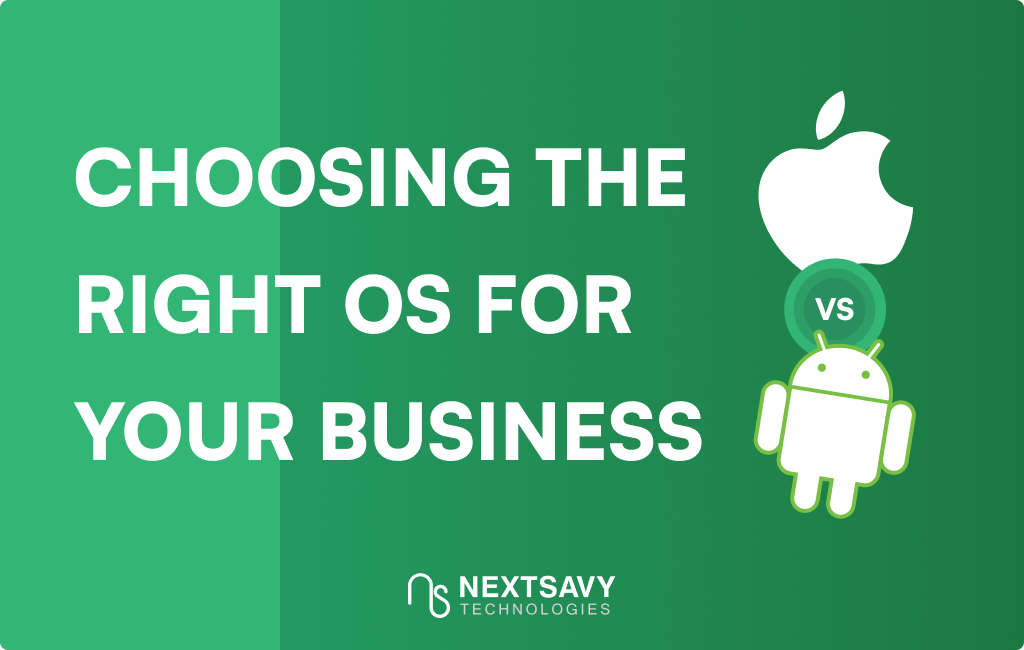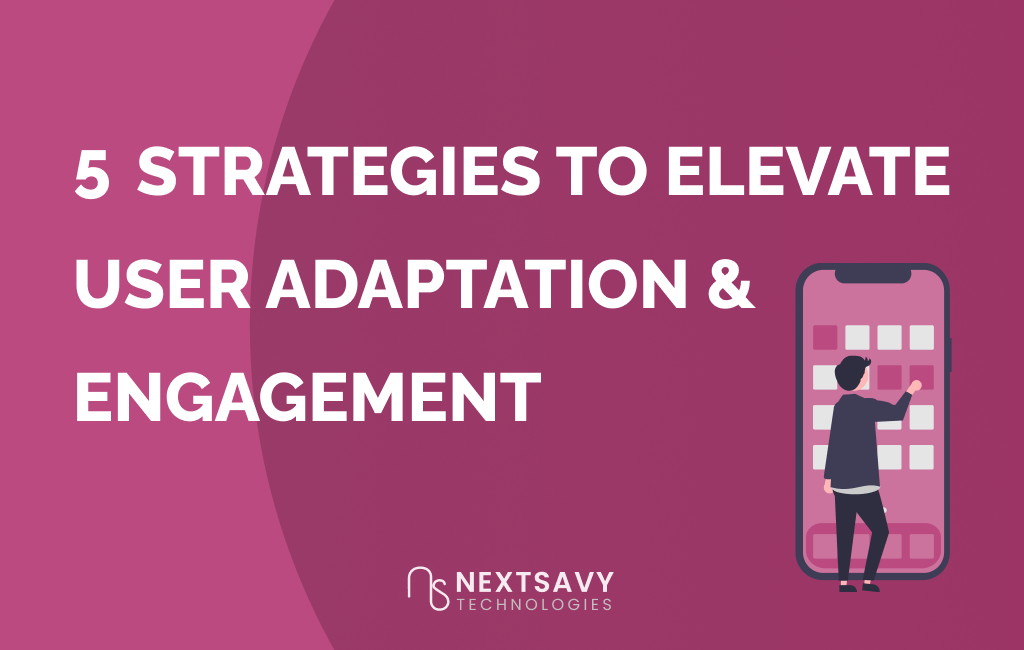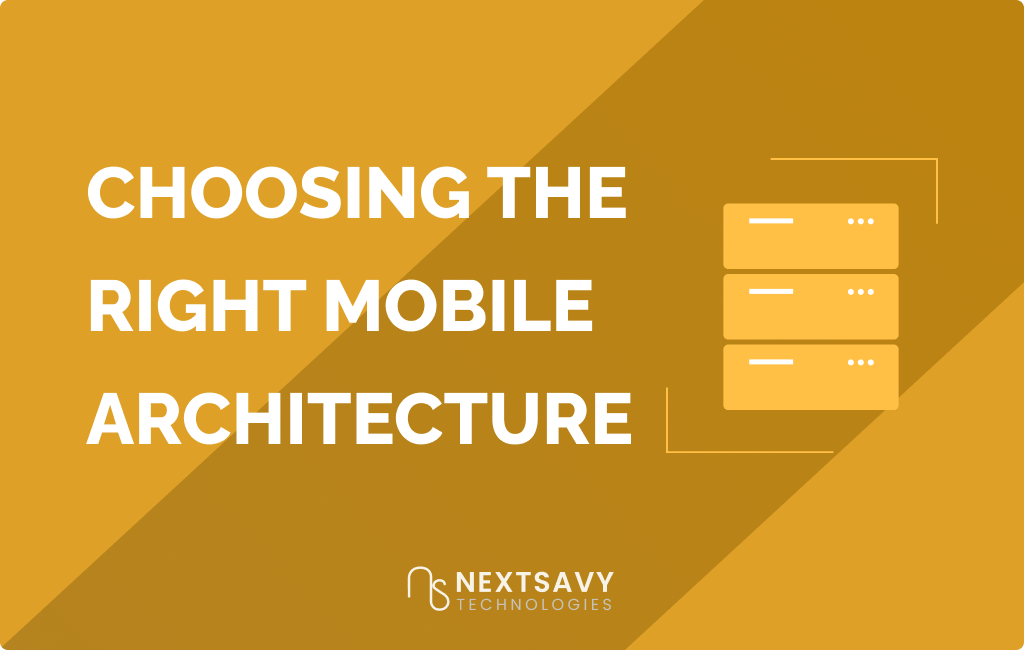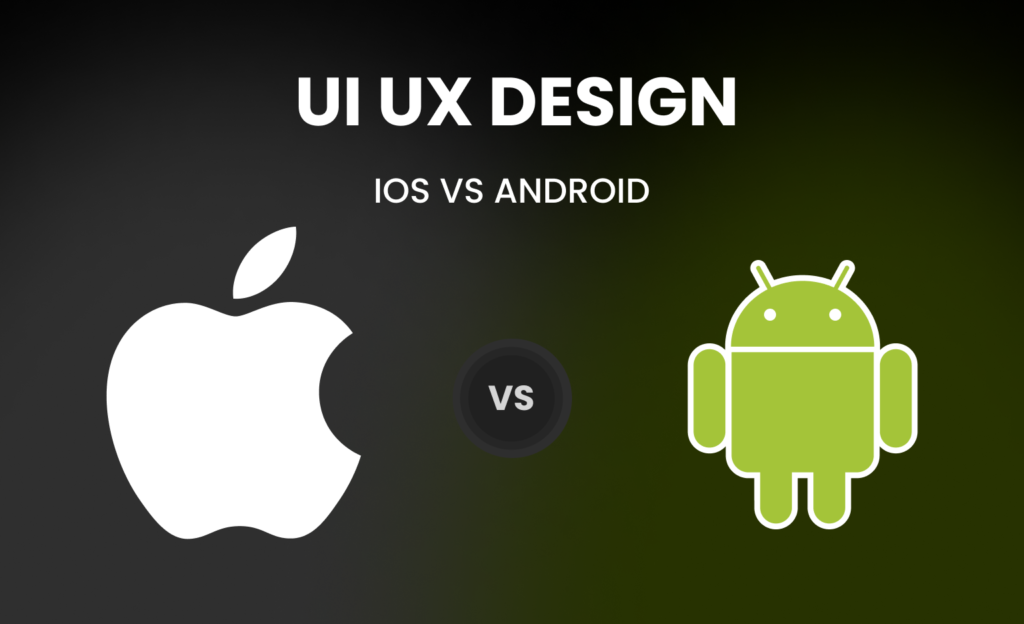November 1, 2023
 Android or iOS app: Choosing the right for your business
Android or iOS app: Choosing the right for your business

Introduction
We are all aware that there are currently only two prominent mobile app development platforms in the world: Android and iOS, both of which have pros and cons.
Android is an open-source platform that provides developers with more flexibility and customization options.
iOS, on the other hand, is a closed platform that offers more security and a more user-friendly experience.
Despite their differences, both platforms have millions of users and provide a broad range of features and functionalities.
But the next question that arises is which platform to choose, that can benefit from both user perspective and developer perspective.
When deciding which platform to pick, it is essential to evaluate elements such as user demographics, user behavior, developer tools resources, and market trends.
However, all platforms demand different programming languages and development tools, which can make the decision even more challenging. Finally, the platform chosen will be determined by the project’s specific objectives and goals, as well as the target audience.
After the platform has been chosen, the next crucial step is to decide whether it has to be a native/ hybrid iOS application or native/ hybrid android application.
What are native apps and hybrid apps?
Native Applications are designed particularly for one platform. These applications are built with programming languages that only support one platform at a time.
For Android app development, the languages are Java or Kotlin, for iOS app development, the languages are Swift or Objective-C
Hybrid Applications are compatible with both iOS and Android app development. They are developed in front-end developer languages such as CSS, JavaScript, and HTML5, allowing them to function cross-platform. Hybrid apps are cost-effective and easy to maintain since they just require one codebase.
More importantly, which app is most appropriate for the client’s target audience?
We’ve spent the last 7 years helping businesses to turn their websites and web apps into native apps as well as hybrid apps. But the answer to the question above, “What is the most appropriate platform?” does not have a definite answer.
Both have a different set of advantages. The ideal one for you is determined by a number of criteria, including your budget, needs, and deadline. Keep reading this blog, to have a solid understanding of the various kinds of applications accessible. It allows you to make an informed decision about the best technology to utilize to construct your app.
The factors that needs to be considered before deciding which platform to go for your client’s product are as follows
Factors to consider when selecting a platform for client’s product
Budget
Firstly, iOS development tends to be more expensive due to the fact that Apple has stricter guidelines. It requires developers to use specific programming languages. This can result in higher development costs and longer timelines.
On the other hand, Android programming, on the other hand, is often more flexible and open-source, allowing for greater flexibility and perhaps reduced costs.
Programming languages
Programming languages differ in iOS app development and android app development. Some popular programming languages used in iOS app development include Swift and Objective-C while Java and Kotlin are commonly used in android app development.
It is crucial to have a skilled group of developers who are highly proficient in these languages and have developed apps for both platforms.
Ultimately, the decision to develop for both platforms should be based on the needs and preferences of your client, as well as the resources and expertise of your development team.
Cross – platform development
Sometimes it might happen that you are satisfied with both app development features; android and ios. You can go for both android app development as well as iOS app development but Additionally, developing for both platforms can also significantly increase the overall cost of development.
Therefore, it’s important to weigh the benefits and drawbacks of each platform and make an informed decision based on the needs of your client and their target audience.
“When a customer enters my store, forget me. He is king”
Therefore, it is important to consider the preferences and needs of your target audience before making a decision on which platform to prioritize. Ultimately, the success of your app will depend on how well it meets the needs of your customers and provides a seamless user experience.
App security
When it comes to security, the first thing that comes to mind is an iOS application. Yes, the iOS application has been programmed to be one of the most secure applications in the world.
While iOS applications may have a reputation for being more secure, Android has also made significant advancements in recent years by improving its security features and has become a more secure operating system, with regular updates and improvements to its security features. This has helped to protect users’ personal data and prevent cyber attacks.
Android has also made significant improvements in recent years. It is important for users to take necessary precautions and practice safe browsing habits regardless of the platform they choose to use. Ultimately, the safety of sensitive information and online transactions depends on the actions of the user.
Design
When it comes to design in iOS app development, they have always embraced simplicity. Its simple and elegant structure has kept everything so easy and visually clear. With its sleek and clean design iOS app has set a benchmark in the world of mobile operating systems. Its user interface is intuitive and easy to navigate, making it a popular choice among users.
When it comes to design in Android app development, there have been significant improvements over the years. It promotes a visually rich and responsive interface, with elements like elevation, shadows, and animations, creating a sense of depth and interaction.
The most remarkable thing Android offers is its highly customizable, from themes, color schemes, and typography, to different layouts and widgets, developers have more flexibility to tailor the app design according to their specific needs.
App monetization
App monetization in Android and iOS app development refers to the process of generating revenue from mobile applications.
In-app advertising, in-app purchases, subscription models, and sponsorships are all ways to monetize an app.
To find the ideal monetization strategy, app developers must carefully analyze their target demographic and the type of app they are creating. Ultimately, successful app monetization requires a balance between generating revenue and providing a positive user experience.
Which platform should you choose?
This dilemma is faced by everyone, clients as well as app development companies about choosing android app development or iOS app development. Before going in depth about the said topic understand that;
Customer is a “King” whether a web development team treats him like one or not. Priority should be given to their needs and wants. Focus more on what you can do in order to assist them to get satisfactory outcomes. Their satisfaction and happiness should be the top priority of any business. Also their feedback, opinions should be valued and considered.
Once the platform has been decided, go in depth about how and in what ways it will benefit the client’s business, what will be hurdles and what will be the advantages.
Now once discussed, a platform jot down advantages and challenges that could come along the way and also give a glimpse/ teaser about how the app might.
Tech Stack
The choice of a tech stack can significantly impact the development process, the performance of the app, and the user experience. Here’s an overview of the typical tech stacks for Android and iOS development:
Tech stack for android app development:
- Programming languages: Android app development primarily uses Java and Kotlin as the official languages. Kotlin has gained popularity due to its conciseness and modern features.
- Integrated development environment (IDE): Android Studio is the official Android development IDE. It offers a variety of features, including an emulator for testing programs on various Android devices.
- UI Framework: Android apps use the Android XML layout files and the Android XML UI framework to design the user interface.
- Backend Services: Android apps require backend services for features like authentication, data storage, and cloud functionality. Developers can use various technologies like Firebase, AWS, or custom server solutions.
- Version Control: Git is widely used for version control and collaborative development.
Tech Stack for iOS Development:
- Programming Languages: iOS app development primarily uses Swift as the official language. Objective-C is another option, but it’s less commonly used in newer projects.
- Integrated Development Environment (IDE): Xcode is the official IDE for iOS development. It provides a wide range of tools for coding, debugging, and testing iOS apps.
- UI Framework: iOS uses UIKit or SwiftUI for building the user interface. SwiftUI is a more modern and declarative framework introduced by Apple.
- Backend Services: iOS apps can interact with backend services using technologies like RESTful APIs, GraphQL, or third-party SDKs.
- Version Control: Like in Android development, Git is commonly used for version control and collaboration.
In the world of app development, the tech stacks of Android and iOS apps differ due to their unique features and needs. While there may be some similarities between them, it is critical for developers to possess expertise in the specific languages. The tools required for each platform to create exceptional apps.
Furthermore, cross-platform development frameworks, such as Flutter and React Native, provide the benefit of building apps for both platforms while sharing a significant portion of the codebase. With this approach, developers can create high-quality apps that cater to the needs of both Android and iOS users.
Wrapping it
It’s essential to consider multiple factors when deciding between Android and iOS app development, as each option has its own strengths and limitations.
It’s important to note that there is no one-size-fits-all conclusion, so it’s crucial to approach this decision wisely. By considering all aspects of the platforms, you can make a well-informed decision that will set you up for success.
If you find yourself struggling to pick the right platform for your project, please know that we at Nextsavy Technologies are here to lend a helping hand. Our team is dedicated to providing personalized guidance and support based on our extensive knowledge and experience. We take the time to thoroughly understand your unique needs so that we can recommend the best option for you. Don’t hesitate to contact us for expert assistance and choose the platform that aligns with your needs and goals.
FAQ’s
To select a mobile app development platform, consider the target audience, preferred devices, market share of operating systems like iOS and Android, available resources, and desired app features and functionalities. Different platforms may offer better support for specific functionalities.
Native apps, Web apps, Hybrid apps are three types of mobile applications. Native mobile apps are designed to run on a single operating system—iOS, Windows, or Android. Web apps include all browser-supported applications. Hybrid apps combine elements of both native and web apps.
A cross-platform app development provides a common codebase that can be used to build iOS and Android applications and other platforms like Windows and Linux.






